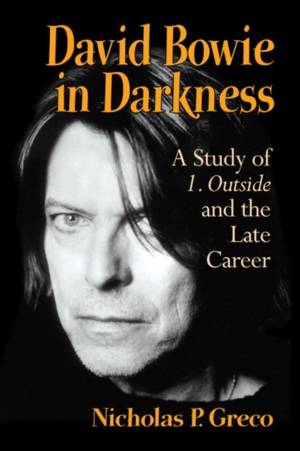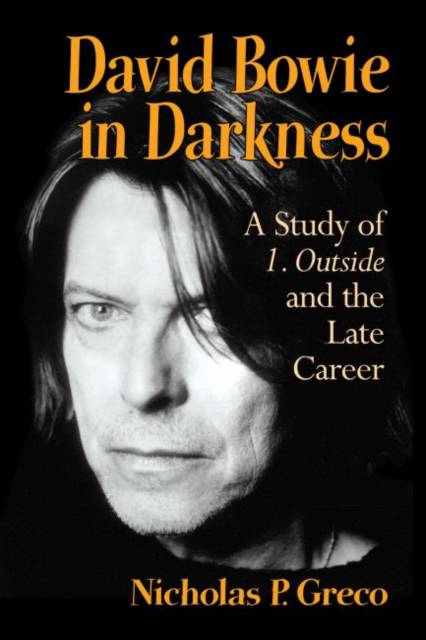
- Retrait gratuit dans votre magasin Club
- 7.000.000 titres dans notre catalogue
- Payer en toute sécurité
- Toujours un magasin près de chez vous
- Retrait gratuit dans votre magasin Club
- 7.000.000 titres dans notre catalogue
- Payer en toute sécurité
- Toujours un magasin près de chez vous
David Bowie in Darkness
A Study of 1. Outside and the Late Career
Nicholas P GrecoDescription
As an artist, David Bowie was widely considered a "chameleon," shedding one persona to create another and thus staying popular, relevant and compelling. In reality, Bowie was able to work with the resources around him to create something new, causing many to see him as a sort of lone artist rather than a collaborator in the creation of his own celebrity.
Mid-career, Bowie began presenting himself as a figure in darkness, progressively more hidden. He required an audience for his continued celebrity but worked against that audience in the creation--or rather the destruction--of his star image. This tension is made clear in his 1995 album 1. Outside, which has him performing for an audience while simultaneously shunning them. This book explores Bowie's negotiation of his celebrity during his later career, with particular focus on 1. Outside, an album symptomatic of deep-seated societal and personal anxiety.
Spécifications
Parties prenantes
- Auteur(s) :
- Editeur:
Contenu
- Nombre de pages :
- 232
- Langue:
- Anglais
Caractéristiques
- EAN:
- 9780786494101
- Date de parution :
- 10-07-15
- Format:
- Livre broché
- Format numérique:
- Trade paperback (VS)
- Dimensions :
- 152 mm x 226 mm
- Poids :
- 317 g







